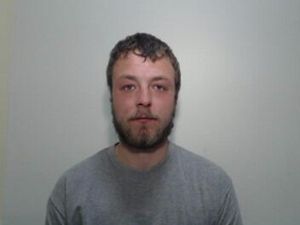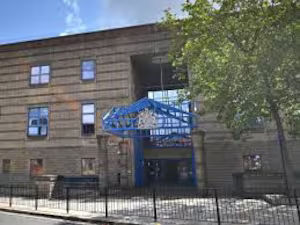'Little Girl Blue' Helen Bailey was unlawfully killed, inquest rules
A coroner is to urge prosecutors to launch a review after hearing how police believe an eight-year-old girl was murdered in Great Barr in 1975 by a suspect who later confessed to strangling her.
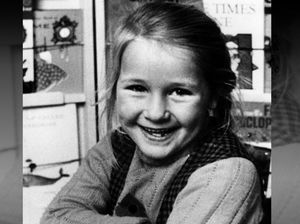
Senior Birmingham coroner Louise Hunt said she intended to write to the Crown Prosecution Service after being told that John Sir made three confessions to killing Helen Bailey while talking to hospital staff in the late 1970s.
An inquest was told Sir's account to a doctor, of strangling Helen and then cutting her throat with a pen knife because she was still breathing, was "entirely consistent" with new pathological evidence.
Helen became known in media reports as "Little Girl Blue" after she disappeared, wearing blue clothing, on August 10 1975.
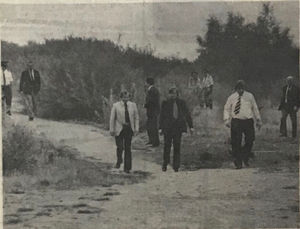
Giving evidence via a videolink from an unnamed prison to Birmingham Coroner's Court, Sir, now 72, agreed that he was walking two dogs in the local area on the day Helen vanished.
The suspect, formerly known as Kenneth Etchells, denied any involvement in Helen's death during his evidence, and claimed he invented three confessions to make himself "look interesting" at a psychiatric hospital.
Sir also maintained that it was a coincidence that his account to doctors in the late 1970s was "entirely consistent" with evidence of how she died, which only emerged during a cold case review launched in 2012.
Helen's body was found at a quarry near woodland close to the M6 motorway a day later, and an inquest in 1976 ended with an open verdict after jurors were told a "shallow" throat wound may have been accidental or the result of a practical joke.
A fresh inquest was ordered by the High Court last December after an application by the Birmingham coroner to quash the original verdict.
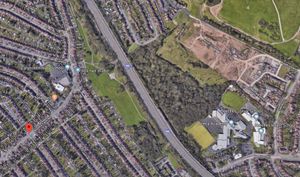
During more than 25 minutes of testimony, Sir, wearing square-rimmed glasses and an ill-fitting yellow T-shirt, was asked by the coroner whether he knew what happened to Helen.
Sir answered: "Only from what I have heard or saw in the papers or whatever."
Asked why he had made a confession to a doctor at Birmingham's Highcroft Hospital in 1978, Sir added: "I wanted a refuge, somewhere to just sort myself out. It's something that I have done a few times."
Mrs Hunt then asked Sir: "Why did you confess to the murder of an eight-year-old girl just to get into hospital?"
Sir responded: "To make myself interesting to them. To ensure that I got in."
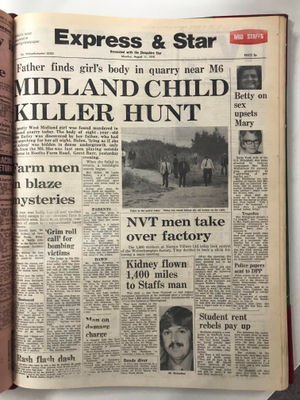
Mrs Hunt then asked Sir: "You are telling the court that it's a coincidence that in 1978 you gave three separate confessions that are consistent with post-mortem findings that were only available in 2012?"
As well as denying that he was responsible for Helen's death, Sir replied: "As I say, all I can say is it was a coincidence."
Sir was then pressed by the coroner, who asked him: "You made confessions in 1978 that gave a very specific mode by which Helen died - that she was strangled and then that her throat was cut.
"That was not known at the time and it's only in 2012 that that has since become known.
"How could you have known that information when it wasn't available or known about until 2012?"
Sir answered: "I cannot explain that, other than coincidence."
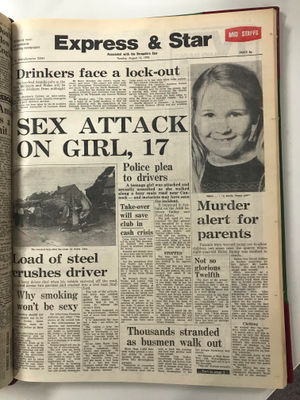
The coroner went on to ask Sir, who was then living in Tamworth, if he had owned a pen knife at the time of Helen's death.
After a long pause, Sir told the hearing: "I may have done, because I go fishing. It would have been in with my fishing tackle."
Earlier in the hearing, Detective Chief Superintendent Caroline Marsh said a cold case review, which led to Sir's questioning in 2014, had left her "absolutely certain" that Helen was murdered.
The officer told the hearing: "I have no doubt in my mind.
"I believe the perpetrator was Kenneth Etchells and there are no outstanding suspects in this inquiry."
Ms Marsh said that despite representations from West Midlands Police, the Crown Prosecution Service (CPS) had decided there was insufficient evidence to prosecute Sir for murder.
Sir, whose family home was near to where Helen's body was found, was interviewed at Bloxwich police station over two days in May 2014, after being arrested while in prison.
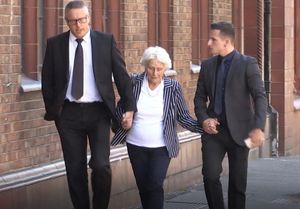
The serving prisoner was given a life sentence in 1991 for the attempted murder of his mother, who was attacked with a hammer and died months later from pneumonia.
During Friday's hearing, Mrs Hunt said she had written before the inquest to the CPS, who had already replied to say they would only reconsider the case again if new evidence was presented.
Recording her finding of unlawful killing, the coroner said: "I will be writing to them again with the outcome of this case and asking them to reconsider their decision."
Following the inquest, Detective Chief Superintendent Mark Payne, head of West Midlands Police CID, said: "We're very pleased today that the coroner has recorded a different verdict which properly reflects the way that Helen met her death.
"We are actively pursuing this investigation - a cold case review - and are very much hopeful of bringing an offender to justice."
Helen's mother, Margaret Bailey, now 86, said in a statement read to the inquest that she wanted justice to be seen to be done.
Speaking after the hearing, she said: "It's just blighted our lives."
The retired receptionist, who described the person who killed her daughter as "wicked", said: "We would like closure. We've waited 44 years for this day."




